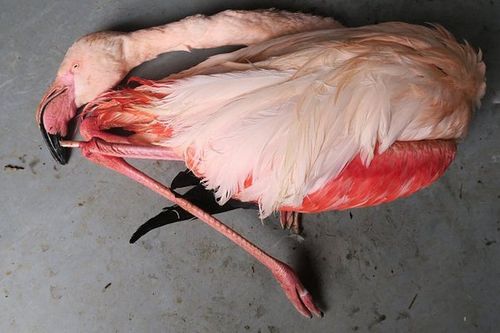Dead animals emit an unpleasant odor as they rot. This odor mainly comes from chemicals released when bacteria decompose the animal carcasses. This makes many people wonder whether breathing in the smell of dead animals is harmful to health? This article will explore this issue in depth and provide relevant health protection suggestions.

The odor of dead animals is usually the result of complex chemical reactions produced during the process of decay and decomposition. When an animal dies, bacteria in its body begin to rapidly decompose its tissues, releasing volatile organic compounds including hydrogen sulfide, ammonia, methane, and amine compounds. When these substances permeate the air, they produce a strong odor.
Hydrogen sulfide (H2S): A toxic gas that smells like rotten eggs.
Amine compounds: Such as putrescine and cadaverine, which are products of protein decomposition and produce a strong smell of decay.
Ammonia (NH3): An irritating gas that is common during decay.
Many chemicals in the gases released by dead animals are irritating to the human respiratory tract. Inhaling high concentrations of decaying odors for a long time may cause a series of respiratory problems, such as coughing, sore throat, nasal congestion and runny nose.
The volatile compounds contained in the stench of dead animals may cause headaches, nausea and even vomiting. This discomfort usually stems from the brain's strong reaction to the smell. For some sensitive people, this smell will cause a stronger physiological reaction.
Rotting animal carcasses may carry germs and parasites, especially in the wild or in unsanitary environments. Certain bacteria and viruses, such as Salmonella and E. coli, can be airborne, especially when in direct contact with animal carcasses. Therefore, while simply smelling a rancid odor does not necessarily lead to direct infection, the risk of infection is greatly increased if proper hygiene measures are not taken when handling dead animals.
Hydrogen sulfide is a toxic gas commonly found in the decaying process. Inhaling high concentrations of hydrogen sulfide for a long time may cause dizziness, nausea, and even severe poisoning. If rotting animal carcasses are handled in a confined space, the concentration of hydrogen sulfide may accumulate quickly, posing a health threat.
When handling rotting animal carcasses, it is recommended to wear a mask and gloves to reduce the risk of inhaling harmful gases and contact with germs. If it is necessary to enter a confined space to handle animal carcasses, it may be safer to wear a gas mask.
When handling dead animals, ensure that the handling environment is well ventilated, which helps dilute harmful gases in the air and reduce irritation to the respiratory system and the risk of toxic gas poisoning.
After handling dead animals, wash your hands thoroughly and disinfect tools. Avoid contact with food and mouth and nose to prevent the spread of bacteria or viruses. In addition, the area where the dead animals are cleaned also needs to be disinfected to eliminate any residual germs.
If dead animals are found at home or nearby, they should be disposed of as soon as possible. Failure to dispose of them for a long time may lead to the release of more harmful substances, especially in hot climates, where the decomposition process is accelerated.
When encountering dead animals in the wild or in urban environments, the situation may be more complicated. Some animal carcasses may have been eaten by wild animals or pets, increasing the risk of spreading germs. In addition, dead animals in cities, such as rats or birds, may carry various diseases, so special care is needed in handling them.
For pet owners, dealing with dead pets may involve emotional pain and hygiene issues. In this case, it is best to contact your local animal control department or a professional pet cremation service company to dispose of the pet's body in a safe and respectful manner.
Wrapping the dead animal in a sealed bag can reduce the spread of odors. You can also spray some deodorizer or bleach dilution on the outside of the bag before placing it in the trash to further control the odor.
Using absorbent materials such as activated charcoal or baking soda in the area where the animal is handled can help absorb the gases produced during the decomposition process and reduce the spread of odors.
Inhaling the odor of dead animals can indeed have adverse health effects, especially when the concentration of toxic components such as hydrogen sulfide and amines in the decomposition gases is high. However, for most people, short-term exposure to these odors will not be very harmful. But if you need to deal with rotting animal carcasses, be sure to take appropriate protective measures to avoid inhaling harmful gases and maintain good hygiene habits. Through scientific and safe treatment methods, you can effectively reduce health risks and ensure the safety of yourself and your family.
animal tags: Decaying.gas
We created this article in conjunction with AI technology, then made sure it was fact-checked and edited by a Animals Top editor.